Rail car Scales
From new installs to existing retrofits, we provide train scale sales, installation, and calibration for every application. We offer all related services including repair, scheduled maintenance, and start-to-finish project management from small operations to aggregates for the Portland metro and surrounding areas.
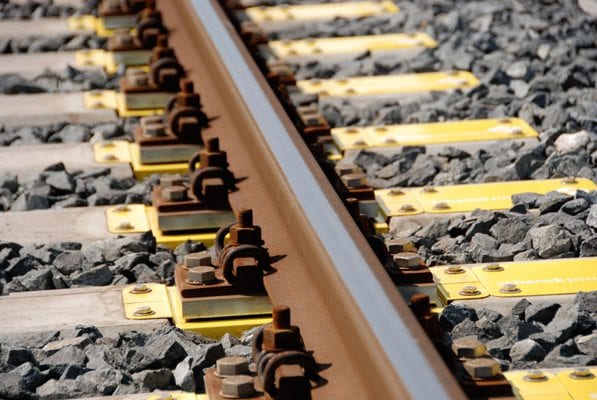
What sets A-1 Scales apart is our staff, some of whom have been providing, installing, and servicing scales for over 20 years. They have a thorough understanding of the different methods and manufacturers available and are more experienced than most manufacturers’ support staff.
Expert Installation
Understanding that each application is unique needs, we offer customized installation services. Our team of expert technicians is adept at installing a variety of train scales, ensuring seamless integration into your existing operations. We focus on optimizing the setup to enhance throughput and accuracy, considering your specific logistical and spatial requirements.
Expert Service
To maintain the highest levels of accuracy and reliability, our services extend beyond sales and installation. We provide expert service, calibration, and repair for all types of train scales.
Our repair services are designed to minimize downtime, with a swift response to any issue you might encounter. From routine maintenance to complex repairs, our team is equipped to handle challenges of all types and severity, ensuring operations are maximized and down-time is minimized.
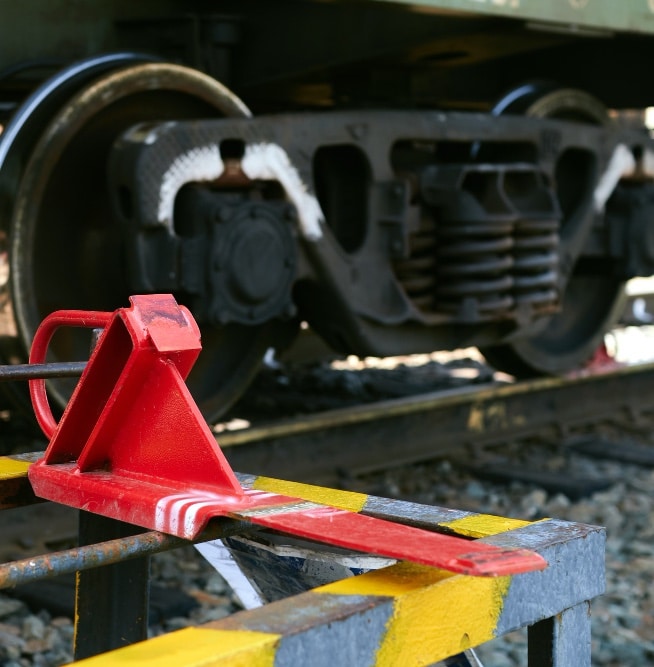
Types Of Rail Car Scales
Static Weighing
Static weighing is the oldest method, where a section of rail is placed on load cells and each cart is stopped on this section, the load cells are tared, and a weight is taken.
Benefits:
- Highest accuracy
- Usually NTEP and ready for legal-for-trade purposes
- Suitable for precise applications, such as loading sensitive cargo
Drawbacks:
- Time and energy-consumptive as each car must stop on and then leave the weighing section
- Can hinder traffic
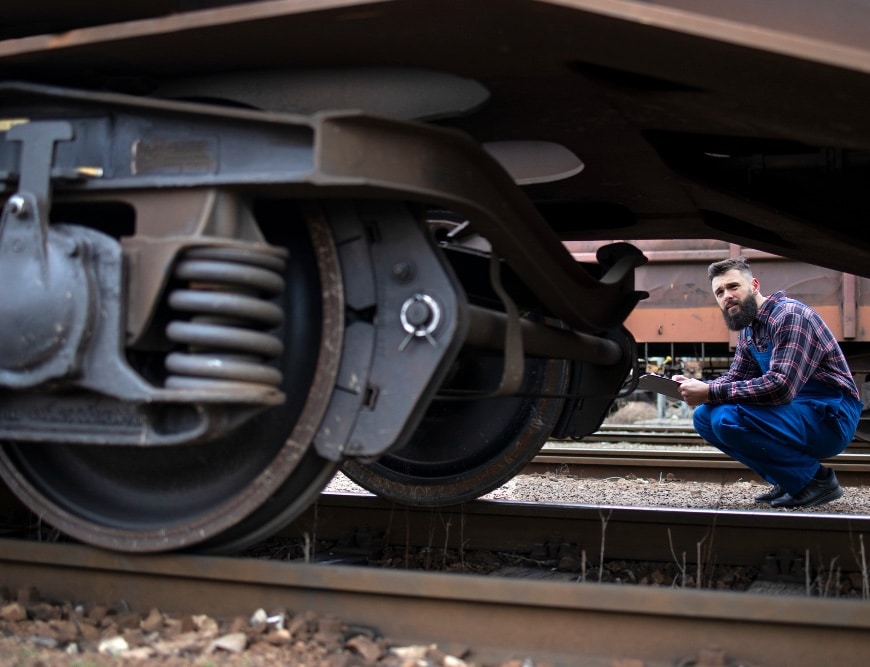
In-Motion Weighing
In-motion weighing uses the same configuration as static weighing, but the load cells are intended for dynamic applications.
Benefits:
- High operational efficiency, as it allows for the weighing of rail cars while they are moving.
- Helpful for high-volume freight operations.
Drawbacks:
- Less accurate than static weighing
- Somewhat more complex and expensive to install and maintain
- Not always NTEP/Legal-For-Trade (depends on manufacturer)
Coupled In-Motion Weighing
Benefits:
- Enables the weighing of entire train sets without decoupling, enhancing operational efficiency.
- Useful for quickly assessing the weight of loaded and unloaded trains.
Drawbacks:
- Similar to in-motion weighing, it may not achieve the precision required for certain legal or sensitive applications.
- Installation and maintenance costs can be high.
Portable Weighing Systems
Benefits:
- Flexible and can be moved to different locations as needed.
- Lower initial investment compared to permanent scales.
- Suitable for temporary sites or where rail infrastructure is not permanent.
Drawbacks:
- Generally, offer less accuracy than fixed scales.
- May require additional setup time and calibration at each new location.
- Limited by environmental conditions and the quality of the installation surface.
Advanced In-Motion Weighing
Advanced in-motion methods were introduced in the 2000’s, where load cells are placed under each tie. This method is significantly more accurate and does not vary much in up-front cost, but the install and maintenance is usually more labor-intensive (but not always).
Benefits:
- Offers better accuracy and speed than traditional in-motion
- Can handle high speeds, making it suitable for modern rail operations
- Minimal impact on rail traffic flow allowing highest speed of in-motion weighing
- Decreases wear on trains, rails, and the load cells themselves
Drawbacks:
- High cost of installation and maintenance (usually)
- May require sophisticated software and training to interpret data accurately
- The accuracy can be affected by rail conditions and speed variations
- Manufacturer Options
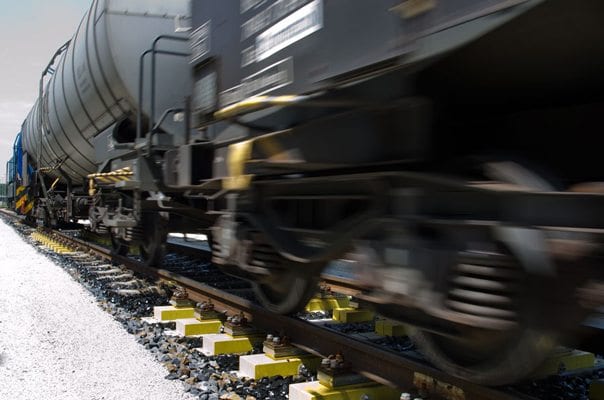
Manufacturers
The go-to suppliers for most applications are Rice Lake, Cardinal, and Avery Weigh-Tronix, each of which give A-1 a reseller’s discount, allowing us to sell at the same price as direct. These manufacturers each have a solution for each type of application, but each solution will have varying levels of load cell quality, tech support, connectivity, indicator quality, ease-of-install, and ease-of-use.
Schenck Process currently leads the advanced in-motion applications with their MULTIRAIL® solution.
It supports a range of functionalities, including the ability to conduct wheel diagnostics and perform RFID scanning.
Why we recommend Schenck for Advanced In-Motion:
- Enables in-motion weighing of up to 14 mph
- Conducts wheel condition assessments at speeds up to 155 mph
- Features low upfront costs
- Offers reduced maintenance expenses compared to competing offerings
- Decreases wear on trains, rails, and scales themselves
- Enhances operational efficiency
- Does not impose speed limitations
- Requires minimal approach and departure space
Cost Efficiency
Schenck’s innovative approach involves integrating ridged load cells within concrete railroad ties, which can be installed underneath the rails with minimal disruption. This method eliminates the need for expensive concrete pads and precast sections, as well as the harsh impacts associated with them. The result is a reduction in maintenance costs, an extension of equipment lifespan, elimination of speed restrictions, improved passenger comfort, less noise, fewer requirements for approaches and departures, and a substantially lowered risk of derailments.
Better Safety
The MULTIRAIL® solution has the capability to assess the condition of wheels and identify whether a load is too heavy or unevenly distributed for the track. While its diagnostic effectiveness is higher at lower speeds, it can still provide crucial insights at velocities up to 155 mph.
Better Logistics
The ability to weigh in motion, up to 14 mph, simplifies logistical challenges significantly, particularly for liquid cargoes that traditionally required stabilization before weighing. Certified for commercial transactions at speeds up to 10 mph, the MULTITRAIN® system can also perform static weighing for reference. It facilitates data transmission to remote locations, thereby reducing the necessity for on-site operators in numerous scenarios.
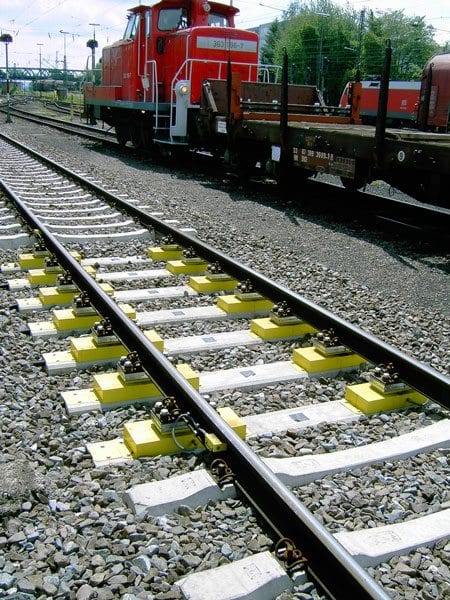
Related Equipment
In addition to rail car scales, we offer a range of related filling and storage equipment to complement your weight measurement solutions. From automated filling systems that virtually eliminate dust to advanced storage solutions designed for optimal space utilization and inventory management, our products are tailored to improve your operational efficiency and accuracy.
Other questions?
Many factors will interact to determine which option is best. Just fill out the form to the best of your ability and we’ll help identify the right ones.
Get In Touch
"*" indicates required fields
